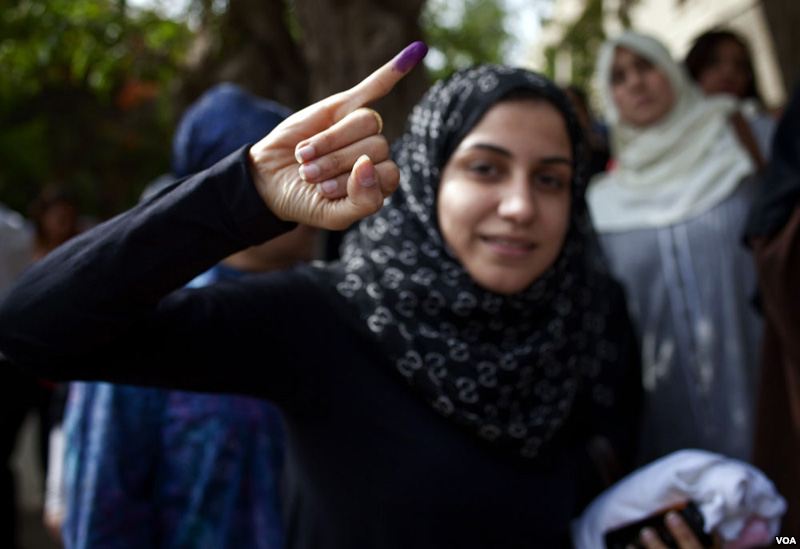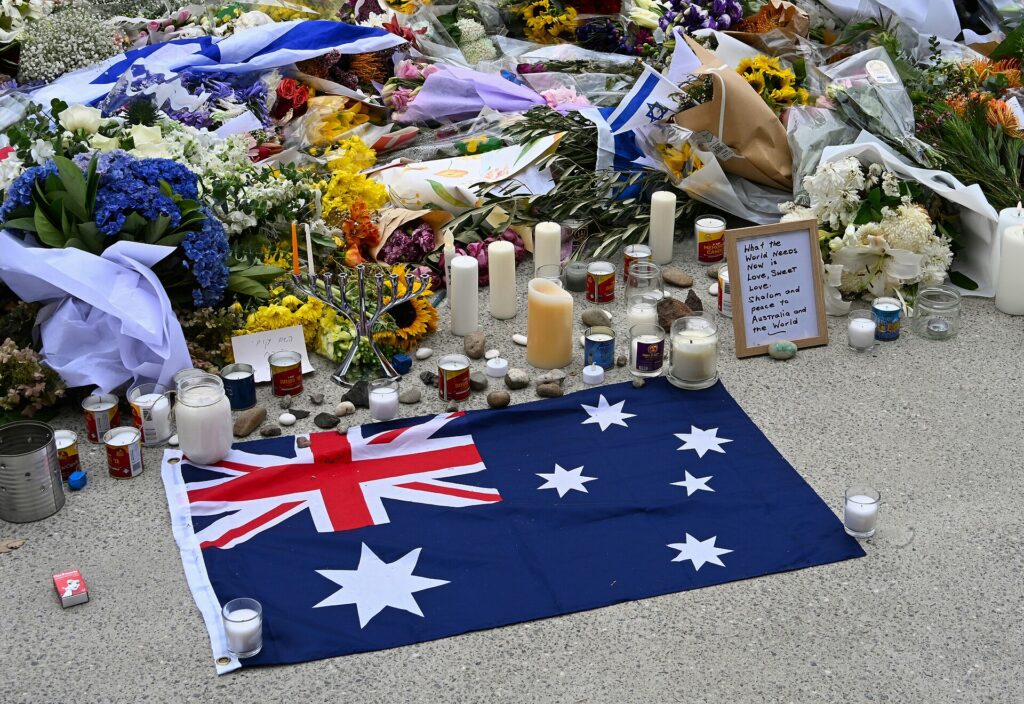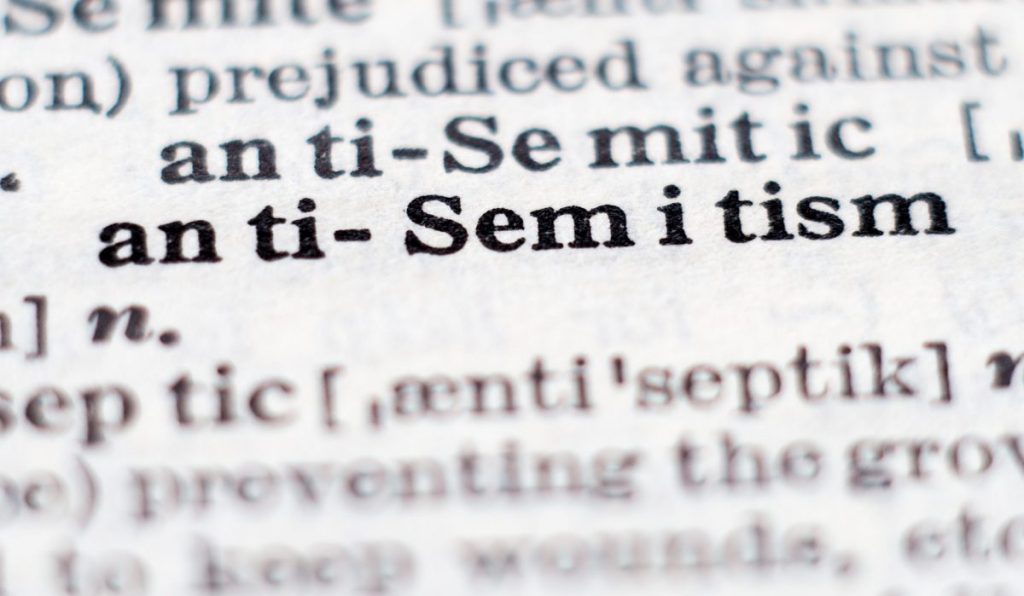UPDATES
Pew Survey of Middle East reveals complex and sometimes conflicted feelings about democracy
July 18, 2012 | Andrea Nadel

The Pew Research Centre’s Global Attitudes Project has just released the results of surveys it conducted throughout the Middle East in the wake of the “Arab Spring.” The surveys reveal some interesting insights about attitudes in the Middle East in the wake of the recent uprisings, including how Middle Easterners weigh democracy, Islamism, economic strength and political stability in their own societies.
One finding is that support for democracy as the preferred political system (compared to more autocratic alternatives) remains relatively strong throughout the Middle East. However, other goals often loom as large or larger. For instance, perhaps unsurprisingly, the average citizen of the Middle East is concerned about economic security in the current tumult. According to Pew,
“Other goals are also clearly important. Many say political stability is a crucial priority, and even more prioritise economic prosperity. When respondents are asked which is more important, a good democracy or a strong economy, Turkey and Lebanon are the only countries where more than half choose democracy. Egyptians are divided, while most Tunisians, Pakistanis and Jordanians prioritize the economy.”
Pew analysts Richard Wike and Bruce Stokes note the predominance of the concerns over economic stability that rival enthusiasm for democracy in the eyes of those surveyed:
“In a perfect world, democracy and economic growth would be mutually reinforcing. But in many corners of the globe — from Latin America, to Africa, to the former Soviet bloc — the reality has proven to be more complex. Whether the Arab world can have both democracy and prosperity is a question that will play out for months and years. But for now, all we can do is measure the attitudes and aspirations of Arab citizens themselves.
While most people in the Arab countries surveyed believe democratic institutions and political stability are crucial priorities, even more prioritize economic prosperity. Their concerns are understandable. The International Monetary Fund foresees slow growth for the region in 2012: only 1.5 percent in Egypt, 2.2 percent in Tunisia, 2.8 percent in Jordan and 3 percent in Lebanon. Strong majorities in Lebanon, Jordan, and Egypt say their standard of living has either not improved or has gotten worse over the last generation. And, in the wake of the Arab Spring, their current economic situation is worsening. Majorities in Egypt, Lebanon, and Jordan think their personal economic situation is bad — and the percentage has increased in all three countries since the Arab Spring broke out.”
Some of the study’s other findings, however, have raised eyebrows.
One of the most disconcerting results of the survey is that while many in the Middle East still say that they prefer democracy to dictatorship, a clear majority in all of the countries surveyed, except Turkey and Tunisia, felt that Saudi Arabia, one of the world’s most repressive regimes and strongest opponents of the changes being promulgated by the so-called “Arab Spring”, actually favours democracy in the region. Perhaps even worse for Western efforts to win hearts and minds in the region, more respondents than not in every country surveyed felt that the US government opposes democracy in the Middle East instead of supporting it. The news isn’t all bad for the West, however: most people surveyed hold largely if not overwhelmingly negative views of Hamas, Hezbollah, Iran and its leader President Mahmoud Ahmadinejad, and al-Qaeda as well.
While respondents disapproved of all of the entities listed above to varying degrees, Hamas and Hezbollah fared particularly badly. In 2007, 54% of Turks had at least somewhat unfavourable views of Hamas; in 2012, that numbered had increased significantly to 61%. Hamas fared similarly in Egypt, but experienced plummeting support in Jordan – in 2007 only 36% viewed Hamas unfavourably, but by 2012 that number had increased to 53%. Jordanians also appear to have increasingly tired of al-Qaeda as well, with 77% disapproving of the group in 2012, up from 61% in 2010.
The data on Iran is also telling. 39% of Egyptians disapproved of Iran in 2006, and today a full 76% view the Islamic Republic unfavourably. Similarly, 73% of Egyptians disapprove of President Ahmadinejad. Jordan reported similar sentiment, with disapproval of Iran hovering at nearly 80%, up more than 20% from 2006. Likewise, 83% of Jordanians disapprove of Ahmadinejad. Turkey and Pakistan are the exceptions in this group – while 55% of Turks disapprove at least somewhat of Iran, this number is down from 61% in 2006, although 48% of Turks disapprove of President Ahmadinejad as well. In Pakistan support has decreased slightly for Iran, with 76% disapproving (up from 72% in 2006), yet a full 42% of Pakistanis approve of Ahmadinejad.
If Middle Easterners are frustrated with the likes of Iran and Hamas, they have similar views of the United States. Disapproval of the US increased in all countries surveyed except for Lebanon, with the most dramatic increases reported in Turkey (72% disapproving in 2012, up from 44% in 2002), Egypt (where disapproval increased by 10% between 2006 and 2012), Jordan and Pakistan (where disapproval increased by similar percentages). In Lebanon, 59% disapproved of the US in 2002, but that number had decreased to 49% in 2012.
Perhaps the most dismaying revelations from the Pew survey relate to Pakistan. Only 42 percent of Pakistanis felt that democracy was preferable to any other form of government, which is significantly lower than any other country surveyed. Pakistanis, concerned about their country’s economic instability, were also far more likely than their peers in other countries to feel that a strong leader was preferable to a democratically elected leader. Analyst Walter Russell Mead offers this explanation:
“This is partly about the unpopularity of the present democratic government. The economy is a mess, terrorists run rampant, and progress at recovering from devastating floods has been agonizingly slow and the usual blatant and appalling corruption takes its toll at every step.
It’s an old cycle in Pakistan. The civilian politicians come in, fail at everything, infuriate the population by stealing everything that isn’t nailed down (and some things that are), until the military sweeps back into power. After a few years of military rule, the country gets nostalgic for the politicians. Elections are held and the cycle repeats.”
The picture emerging from the Middle East in the wake of the “Arab Spring” tells several stories. Middle Easterners still yearn for democracy, but the pressing economic instability that persists in many countries is reminiscent, for some, of the experience of former Soviet countries after the fall of the Berlin Wall. Those countries rapidly embraced democracy but many backslid soon after in the wake of the crippling economic decline that accompanied such quick democratisation. Time will tell whether democracy and prosperity truly can go hand in hand in today’s new Middle East as anyone of goodwill would hope that it eventually does.
Andrea Nadel
Tags: Middle East





